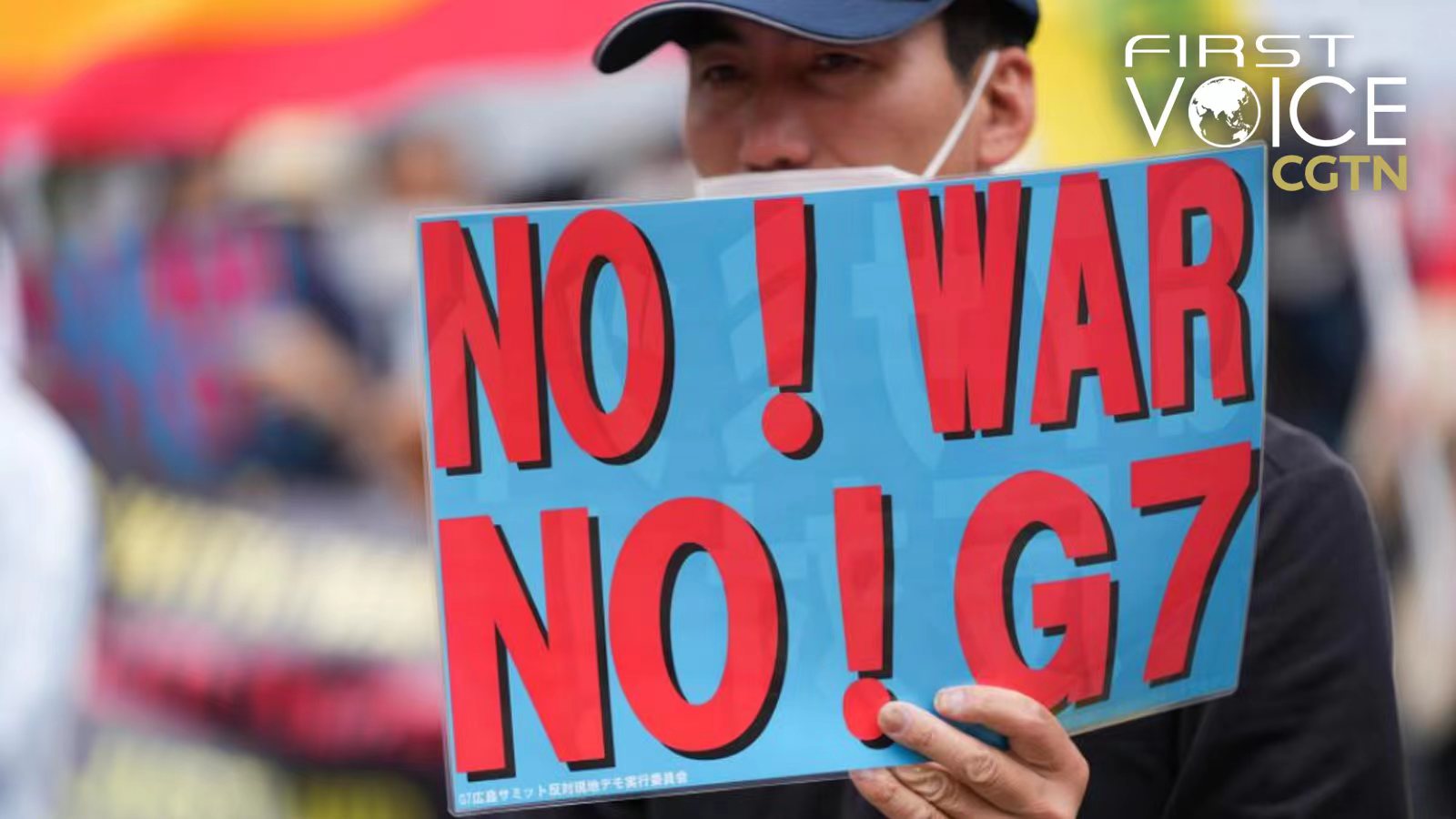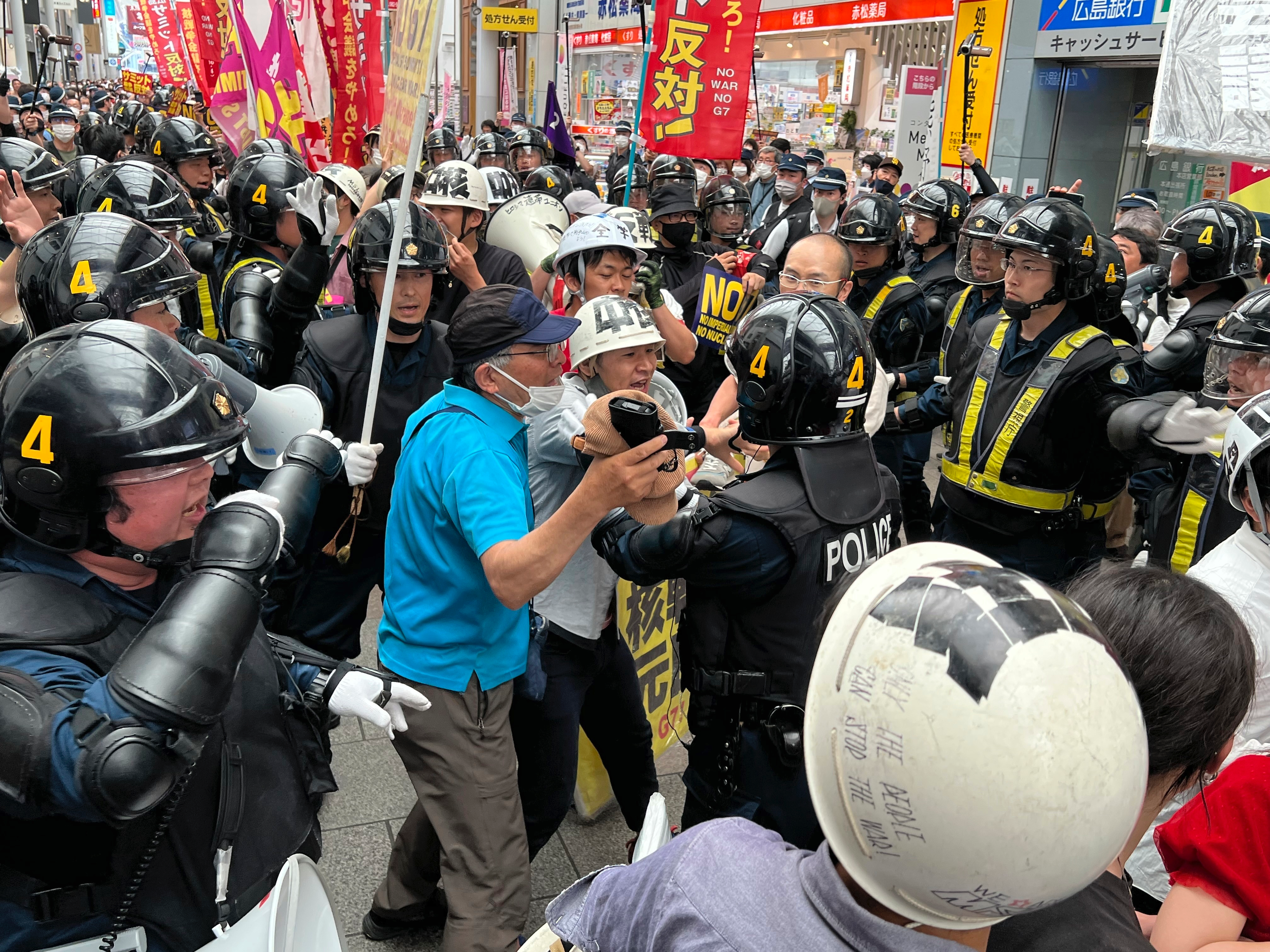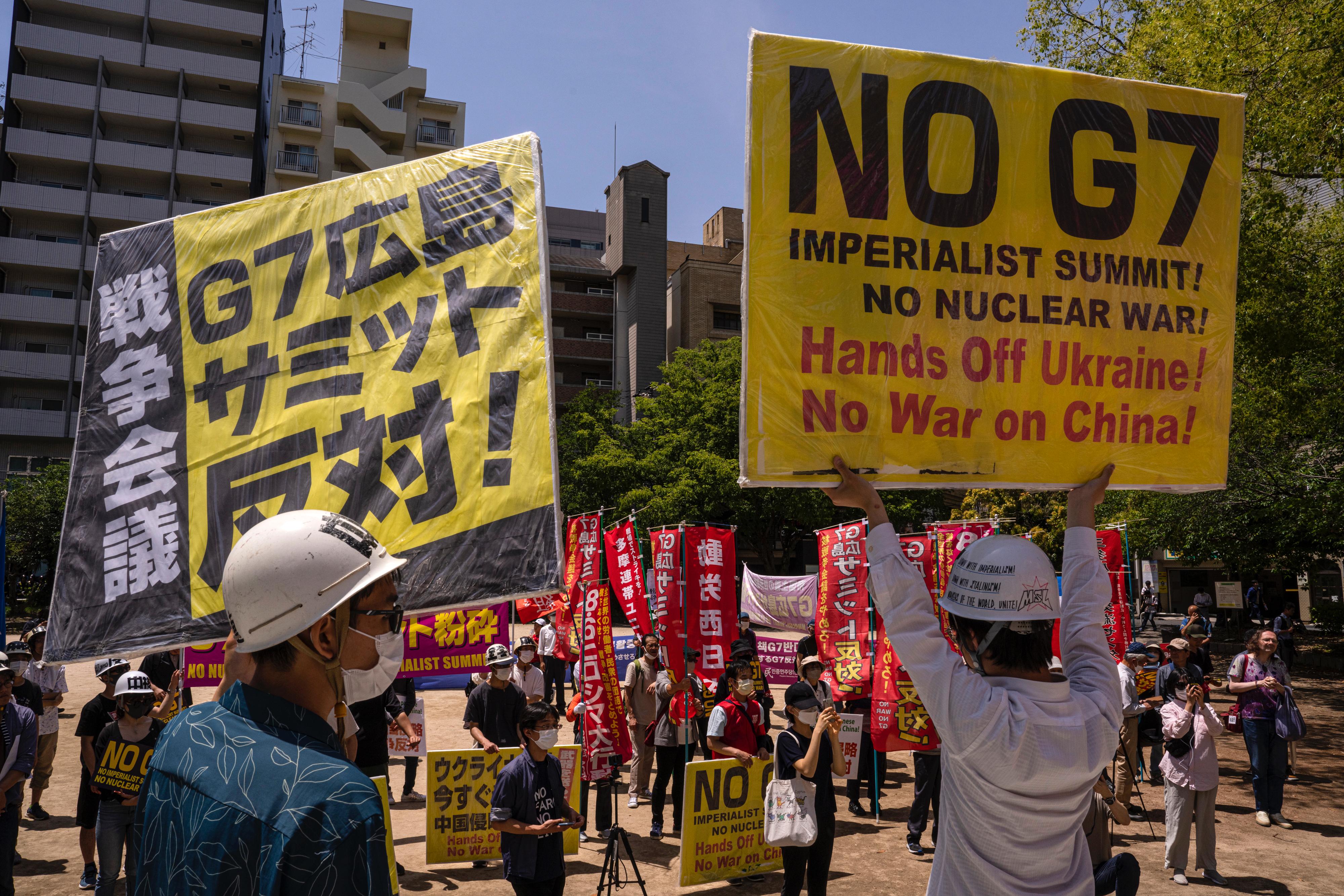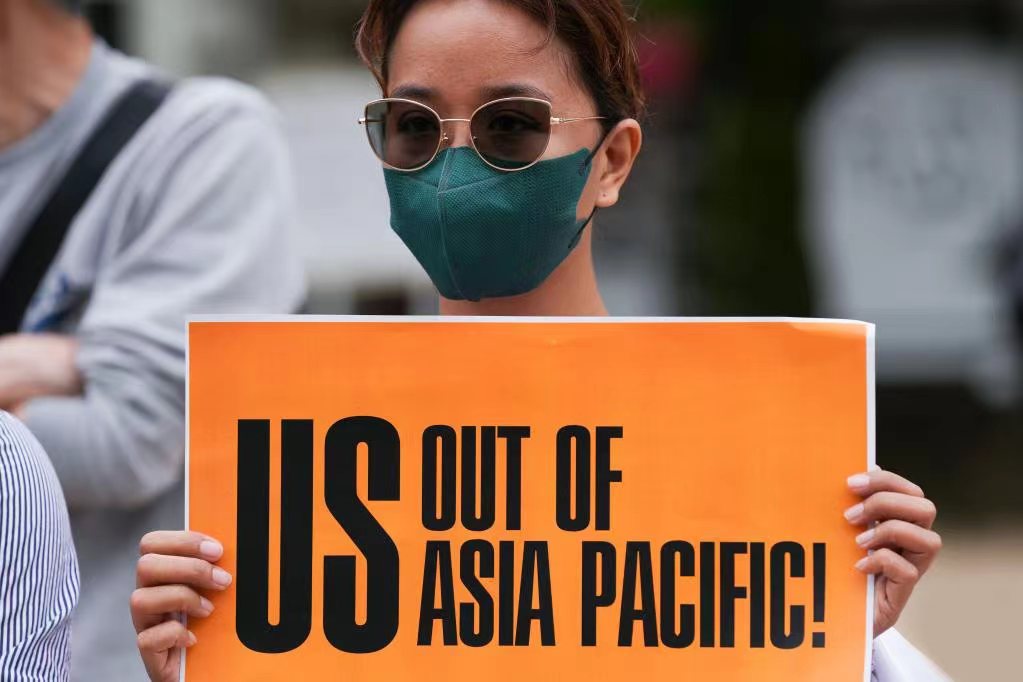
A man holds a placard at Hiroshima's Funairi Daiichi Park in a protest against the Group of Seven (G7) summit in Hiroshima, Japan, May 19, 2023. /Xinhua
A man holds a placard at Hiroshima's Funairi Daiichi Park in a protest against the Group of Seven (G7) summit in Hiroshima, Japan, May 19, 2023. /Xinhua
Editor's note: CGTN's First Voice provides instant commentary on breaking stories. The column clarifies emerging issues and better defines the news agenda, offering a Chinese perspective on the latest global events.
The Group of Seven (G7) Hiroshima Leaders' Communique, which was rushed out on Saturday, covered almost all hotspot topics including climate change, food security, the digital economy, and Middle East conflicts. However, a detailed reading of it suggests the document still focused on the Ukraine crisis, sanctions on Russia and decoupling from China.
As a bloc of wealthy democracies, the G7 is supposed to seize this opportunity to do more good to the global economy and security that have been deteriorating in recent years. However, the reality appears quite the opposite. Touting peace, stability and prosperity, the G7 is following its tradition of impeding global peace, jeopardizing regional stability and suppressing other countries' development.
Instead of addressing urgent global challenges, the Communique focused entirely on geopolitical fights. The summit, according to Radio France Internationale (RFI) reports, shed much light on aiding Ukraine, sanctioning Russia, and addressing China's growing "challenges" to security and the economy. The summit, from its theme to its outcomes, spilled much ink on "pressure" and "de-risk," rather than multi-win cooperation that the international community needs the most.
Global economic topics, including food security and supply chains, were also shadowed under ideological values. Obsessed with forming small cliques, the G7 packaged its selfish gains as issues of global concern. It deliberately turned a deaf ear to real challenges facing the globe.

Protesters confront riot police during a march against the G7 meeting being held in Hiroshima, western Japan, Sunday, May 21, 2023. /AP
Protesters confront riot police during a march against the G7 meeting being held in Hiroshima, western Japan, Sunday, May 21, 2023. /AP
G7 countries have repeatedly made empty promises to developing countries. Stressing cooperation with the Global South and inviting them to play a role, the summit has made no real contribution to those developing countries. Even Western media doubt the G7's motives behind engaging the Global South. Bloomberg believed the G7 bloc was working to deal with China's growing influence, and thus is not sincere in cooperating with the developing world. The bloc is just paying lip service to that.
The G7 owes low- and middle-income countries $13.3 trillion in as yet unpaid aid and funding for climate action, according to a newly released report from Oxfam. In the 1970s, G7 countries promised to provide 0.7 percent of their gross national income in aid. However, they have left unpaid a total of $4.49 trillion since then – more than half of what was pledged. Failing to pay what they owe, G7 countries are demanding the Global South pay $232 million a day in debt repayments through 2028.
At present, the international community is facing a slew of urgent challenges, including climate change, food shortages, refugee crises, and nuclear proliferation. Vast developing countries, especially the poor and fragile states, are bearing the brunt. Do G7 countries still want to make empty promises without making concrete contributions?

People rally in a protest against the G7 summit in Hiroshima, Japan, May 21, 2023. /Xinhua
People rally in a protest against the G7 summit in Hiroshima, Japan, May 21, 2023. /Xinhua
Undeniably, the G7 bloc was influential in the global economy and politics. However, with the rise of developing countries and emerging economies, the G7 – a bunch of colonial powers – has seen its strength and influence dwindling, both in overall economic volume and contributions to the global economy. But still, the G7 remains obstinate in "governing" the world. The bloc arrogantly said it remains "deeply concerned about the deteriorating security, humanitarian, human rights and political situation in Myanmar" and "threats to stability and the dire humanitarian and economic situation in Afghanistan."
The G7 will see its strength declining for a long period of time, according to France's L'Express weekly news magazine. Attempting to govern the world by traditional means, the G7 cannot shoulder its due responsibilities in changes unseen in a century. Worse still, the bloc is exporting instability and uncertainties to the world. It is a troublemaker and creator of global crises.
Caught in a slew of domestic headaches, G7 countries still pretend to be a popular group across the world. In its communique, the G7 reiterates the importance of promoting "universal human rights, gender equality, and human dignity." However, reality is biting. Take the U.S. as an example. Struggling with political divides, bipartisan struggles, gun violence, bank crises, debt-triggered global chaos, and many other domestic problems, the U.S. has never learned its lesson. Ironically, it still harbors the illusion that it can tutor other countries and act as a judge of the world. Failing to address its own severe problems, how can the G7 regain its credibility and influence?

A demonstrator holds a placard at Hiroshima's Funairi Daiichi Park in a protest against the G7 summit in Hiroshima, Japan, May 19, 2023. /Xinhua
A demonstrator holds a placard at Hiroshima's Funairi Daiichi Park in a protest against the G7 summit in Hiroshima, Japan, May 19, 2023. /Xinhua
The U.S. pursuit of hegemony and its unwillingness to admit the irreversible trend of the rising East and the declining West is the root cause of the G7's sliding status. The era where certain Western developed countries willfully intervene into others' internal affairs and manipulate global issues has gone. G7 countries should follow the trend of the times, and put more focus on domestic affairs and return to the right track of peaceful development.
The era of the Cold War and colonization has long gone. Wake up to the reality, G7 countries! It's time to say goodbye to the illusion that you are the mentors of the world!
(If you want to contribute and have specific expertise, please contact us at opinions@cgtn.com. Follow @thouse_opinions on Twitter to discover the latest commentaries in the CGTN Opinion Section.)